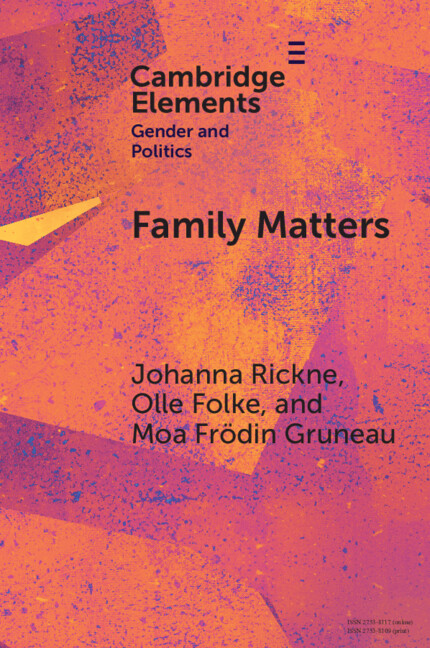Family Matters
This Element studies how career support from romantic partners affects career patterns and costs in politics. It argues that a lower level of career support from romantic partners leads to a lower likelihood for political promotion among women politicians (the partner support hypothesis), as well as greater stress on women politicians' relationships when they advance (the career stress hypothesis). Both predictions find support in Swedish data for more than 80,000 political careers over a fifty-year period. Women politicians are in relationships that prioritize their male partner's career and where that partner does less unpaid work in the household. This is important in explaining women's career disadvantage. It also explains why promotions double the divorce rate for women but leave men's relationships intact. The analysis sheds light on the role played by romantic partners in gender inequality in politics. This title is also available as Open Access on Cambridge Core.
Product details
April 2025Paperback
9781009437820
66 pages
230 × 151 × 5 mm
0.117kg
Available
Table of Contents
- 1. Introduction
- 2. Romantic partners and politicians' career advancement
- 3. Gender gaps in political career advancement
- 4. Politicians' romantic relationships
- 5. Romantic partners as a source of career inequality
- 6. Political promotions and relationship stress
- 7. Conclusions and discussion: where do we go now?
- References.






